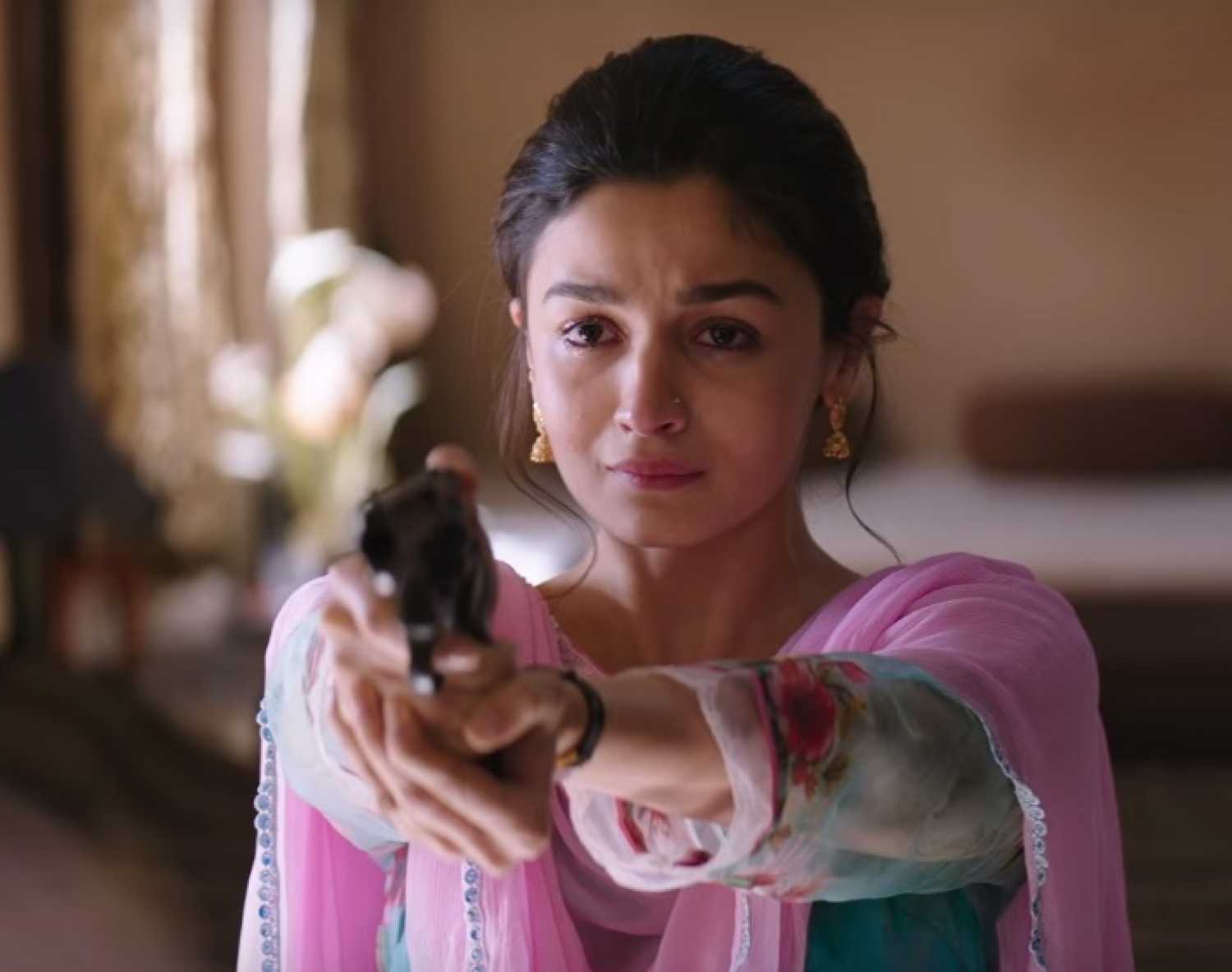Friday, 18 May 2018
Spy in the house of love: "Raazi"
It's become apparent over recent years that Alia Bhatt is Bollywood's brightest new star, the Jennifer Lawrence of the Southern hemisphere. Understandably, either she or the industry she works in - or a serendipitous combination of both - has so far been protective of her talents: she's never seemed overexposed, which has allowed her onscreen responses to remain fresh and surprising, she's had a strong eye for apt, commercially appealing scripts, and she's integrated well amid large ensembles, which - as it surely has done with Lawrence over in Hollywood - has helped reduce whatever burdens that come with becoming a major movie megastar before you're even a quarter-century old. (She had only to prop up one end of the marquee hosting 2015's goofy wedding comedy Shaandaar, and even 2016's Top 10 hit Dear Zindagi was sold on her proximity to Shah Rukh Khan.) Raazi, an old-school star vehicle in which Bhatt plays a Mata Hari-like historical figure, feels like the first real test of the actress's ability to hold the camera's gaze and open a movie by herself; among its many fascinations is the sense that writer-director Meghna Gulzar has taken a traditionally masculine genre - the wartime spy picture - and feminised it to perfectly accentuate her star's shoulders. Here is the Red Sparrow that merits serious, sustained study.
The backdrop - the 1971 escalation of hostilities between India and Pakistan - may initially raise concerns that Gulzar is somewhat opportunistically tapping into that wave of nationalism currently sweeping not just this region but the world entire. It isn't just the period specs and Firthesque bearing of handler Mr. Mir (Jaideep Ahlawat) that gives early scenes the air of a Kingsman-like retro makeover fantasy: Bhatt's Sehmat Khan is plucked, fresh as a daisy, from the lawns of Delhi University, sequestered away to be instructed in the finer points of handling a weapon, and eventually dispatched over the border onto rockier, far more treacherous ground. Yet Gulzar permits none of the egregious flagwaving and willy-waggling associated with the British franchise. The Pakistani military clan Sehmat is married into for reasons of Indian national security are, with the possible exception of a suspicious footman who twigs our heroine might be here on the make, innately good people who mourn the losses their side endure, and not the monsters a far more simplistic feature would have them pegged as; Iqbal (Vicky Kaushal), the upright commander's son whose hand she takes, is a kind and cultured soul, insisting the pair take time to get to know one another, before presenting his bride with a trove of Indian classical LPs.
Spywork is here not a matter not of necksnapping and bodydropping - Bhatt, far from the Angelina model of star, doesn't have the build for it - but insidious emotional betrayal; our heroine - introduced rescuing a squirrel from traffic in a manner that suggests her gifts lie with preservation rather than cold-blooded termination - cries whenever she has to take a life, which is not something we ever caught James Bond or Jason Bourne doing. Certainly, the excellent Shankar-Ehsaan-Loy score tends more towards sensitive keening than conventional action-movie pulsing, the song lyrics (by the director's father, the writer and poet Gulzar) tying very closely to the ebb and flow of the plot, but then this is a rare 130-minute Hindi feature with no unnecessary gestures, no wasted energies, and which benefits immeasurably from holding ultra-tight focus on its protagonist: it's a thriller that realises you don't need characters chasing one another over the rooftops when what's going on beneath their feet is so fraught. At base, Raazi is a domestic drama about a young woman taken prematurely from her actual home and sent to keep an eye on a place where she doesn't belong, knowing full well that to let her cover slip would be fatal; this set-up yields tense setpiece after tense setpiece in the second half, as Sehmat strives, amid rapidly rising stakes, to do what she's been sent to do, and get out before she's found out.
The casting proves both inspired, and a reflection of inspired intelligence tactics first time around: you completely understand why Sehmat's hosts would never, in a billion lifetimes, suspect this apparently meek, dollfaced pipsqueak (codename: "The Bride") of anything so underhand as subterfuge or murder. Yet there's also something in how Gulzar co-opts Bhatt's established star persona - how she takes this outward-looking, forward-thinking girl-next-door, and all but imprisons her for two hours within the machinations of warring states - which is quietly and powerfully feminist. Raazi is a multiplex thriller first and foremost, and one that works superbly as such, but it also sparks more than the odd thought on the dreadfully vulnerable positions conflict can leave women in. Sehmat's final-reel howl at her handler, a lament for everything this mission has taken away from her, is both electrifying and heartbreaking - a long pent-up expression of all that this character has been forced to internalise, and a reminder she was, and to some degree still is, but a child. I went into Raazi fairly secure in my conviction that Bhatt was the best young actress currently working in Bollywood; I came away, shaken, from its closing ten minutes mulling over the possibility she may now be the best young actress working anywhere in the world.
Raazi is now playing in cinemas nationwide.
Subscribe to:
Post Comments (Atom)

You forgot to mention that the real hero of Raazi is the script and Bhatt did nothing that any other competent actor couldn't have done. Anyway Britain still has a monarchy, so I guess bowing and kowtowing to nepotism comes naturally to you. Nothing else explains this overblown praise.
ReplyDelete